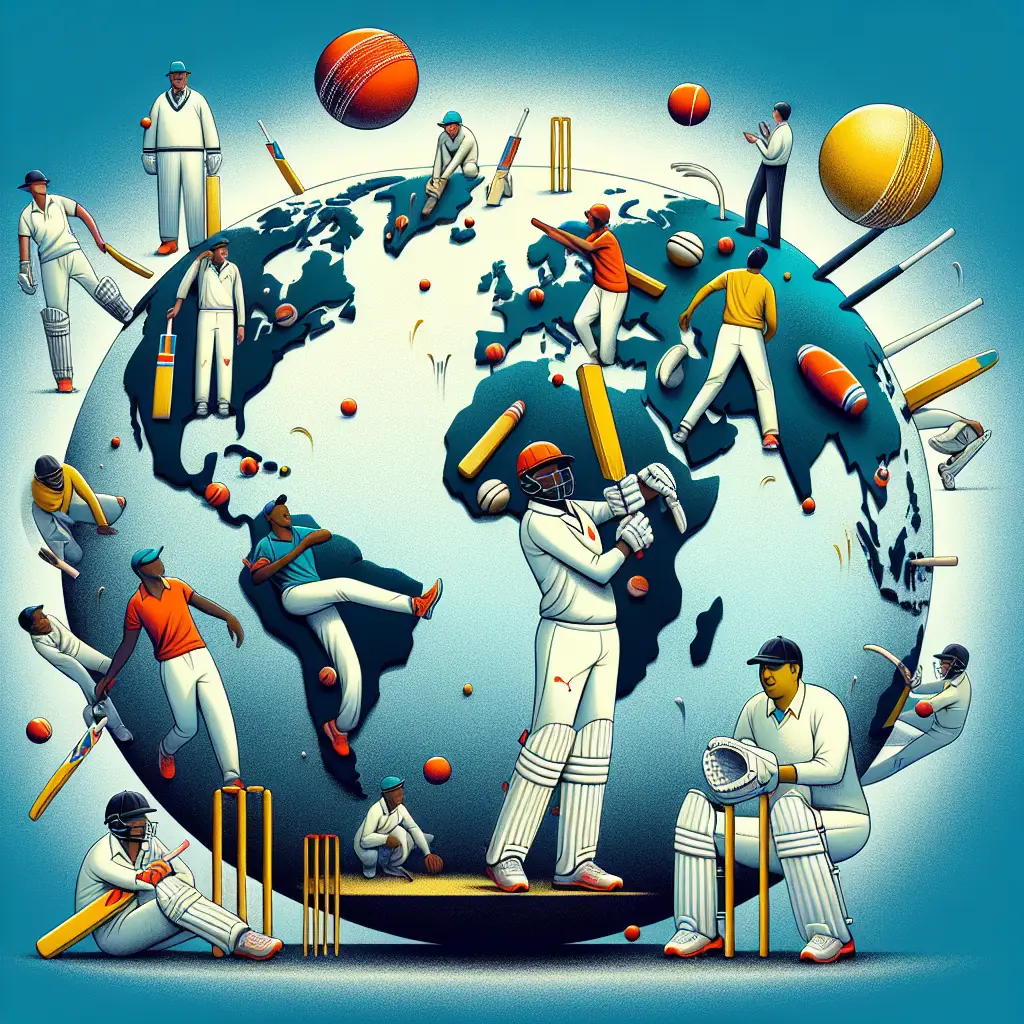The Influence of Cricket on Global Culture
Historical Context of Cricket
Cricket, originating in the late 16th century in England, has evolved from a local pastime into a global phenomenon. With its roots steeped in English social history, the game has transcended its geographical boundaries, becoming deeply embedded in various cultures. The British colonial era played a pivotal role in spreading the game to India, Australia, South Africa, and the Caribbean, establishing cricket as more than a sport—it became a tool for cultural exchange.
The Game as a Cultural Artifact
Cricket is not merely a sport; it is a cultural artifact that reflects societal values, norms, and identities. The elements of the game, such as sportsmanship and fair play, embody ideals that are valued in many cultures. In countries like India and Pakistan, cricket has taken on a life of its own, representing national pride and unity.
Cricket in Literature and the Arts
The arts have been significantly influenced by cricket, with writers, poets, and filmmakers drawing inspiration from the game. Renowned authors such as C. P. Snow and John Arlott have explored the relationship between cricket and social issues in their works. Furthermore, cricket-themed films, such as “Lagaan,” which integrates themes of colonialism and resistance, demonstrate the sport’s larger social and cultural significance.
Economic Impact of Cricket
The economic implications of cricket are monumental. In nations like India, cricket is a multi-billion dollar industry, contributing significantly to GDP. The Indian Premier League (IPL) has revolutionized the game’s financial landscape, presenting cricket as both entertainment and investment. The commercialization of the sport has led to increased job opportunities and infrastructure development, influencing local economies and creating a culture of ambition and excellence.
Cricket and National Identity
In many countries, cricket is intertwined with national identity. For countries like India and Pakistan, the sport has been a unifying force, often marking moments of national pride and collective memory. The games between these nations evoke deep emotions, representing not just competition, but historical narratives and cultural allegiances. Cricket has become a medium through which these nations express their aspirations, struggles, and identities.
Social Change and Cricket
Cricket has the power to drive social change, often serving as a platform for discussions on social issues. In South Africa, cricket played a role in dismantling apartheid, with leaders like Nelson Mandela endorsing the sport as a means to foster unity in a fractured society. The iconic World Cup victory of the South African team in 1995 symbolized hope and reconciliation. Similarly, campaigns like the “Cricket for Change” initiative in the UK focus on using cricket as a means to promote social development and community engagement.
Diversity in Cricket
Cricket has evolved to embrace diversity, exemplified by international tournaments like the ICC Cricket World Cup and the T20 leagues. These platforms allow players from diverse backgrounds and cultures to showcase their talent, breaking down racial and cultural barriers. The representation of different countries and the merging of playing styles create a tapestry of influences that enrich the game, highlighting the sport’s ability to celebrate diversity while fostering a sense of global community.
Women’s Cricket and Gender…
Share this content:

